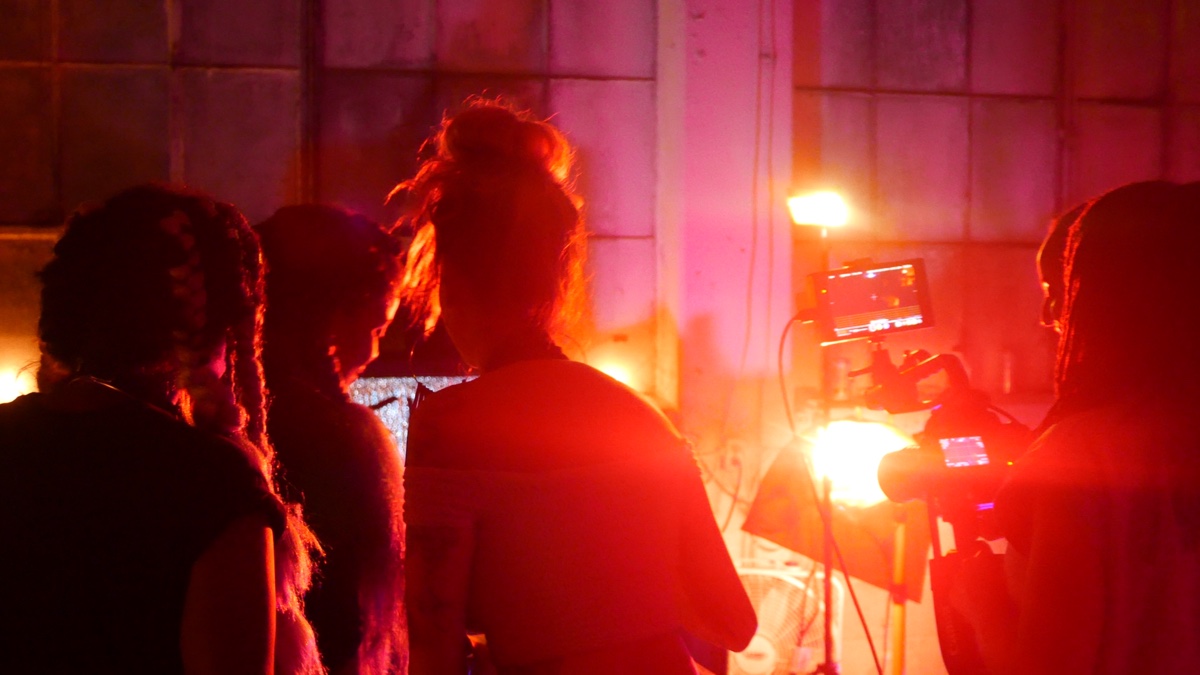
19 Jul Who Gets to Tell the Story?
A Note From Our Editor-in-Chief
BY MONIKA ESTRELLA NEGRA
As I have come into my position as Editor-In-Chief of cinéSPEAK, I have asked myself what power is held within the stories we craft on our own. As a Black, queer filmmaker I have tried to maintain a focus on the authenticity of the stories I create. Too often our narratives are erased in order to maintain the status quo and to ensure that corporate fiscal gains remain uninterrupted. Recently, there has been a surge of visibility in regard to filmmakers who were once shunned for their visions. Technology is partly to thank; social media is aiding the careers of filmmakers who would have been looked over for lack of connections. Since this phenomena, stories that were once co-opted by white filmmakers are now being told by those who’ve lived the tale. In perfect alignment with the cinematic renaissance is a burgeoning film critics movement, with Black and POC critics being able to voice their hot takes on Twitter and YouTube. So yes, while things are changing slowly, more conversations are taking place. Artistic autonomy is the highest priority, and the issues of obtaining resources, distribution deals, and sustainable work spaces are next in line. Gatekeepers are being accosted with the harsh truth of their privilege and entitlement to an industry that has been rife with broken dreams and numerous tragedies. While the door is opening slightly, there is still much ground to be covered.
Film has tremendous cultural influence. It has been used to incite patriotism, promote xenophobia, discourage dissent, and advocate for imperialism. It has also been used to showcase the struggle of communities, celebrate the victories of underdogs, and transport the viewer into uncharted lands. While the U.S. pours thousands of dollars into the film industry, marginalized creators have largely lost out on the funding, causing them to band together and create an underground. “Underground” is an umbrella term for any artistic form that is not in line with the mainstream and can encompass a much wider variety of ideologies, aesthetics and visions. The “underground” has been the only space where Black and marginalized creativity could thrive without critique. Too often these spaces have been robbed and fiercely appropriated by dwellers and voyeurs who have no sense of identity or originality–who only idealize capitalization on art forms for their own benefit. While there is a definitive struggle for young creatives who lack the “influence” to have their work seen, there are examples of radical collectives who have forged their own way to impact popular culture. Within these core communities, social justice and art have never existed as separate entities. Philadelphia, for example, has long been a bastion of independent, creative thought and political critique. Collectives such as AfroFuturist Affair and Metropolarity and organizations like PhillyCAM and Scribe Video Center are entities that have garnered praise because of their ideological praxis and utilization of art as a means of political and cultural dissent. It is our mission to further embody that spirit with our core theme of the year: Who Gets To Tell The Story?
In part, our film journal is looking to celebrate the victories of filmmakers and storytellers who have navigated the treacherous terrain that is conscious and representative filmmaking. The stories crafted that continue to inspire us to better ourselves and our communities. It is our sincerest desire to uplift traditionally marginalized voices within our communities to the highest degree, while maintaining a critical eye on the media that influences us and crafts our perspectives. With an incredibly diverse Editorial team and solidarity with other communally focused organizations in Philadelphia, we aim to continue creating safer spaces to ensure the continuing evolution of Philadelphia’s rich history of radical art and cinema. The seeds have been planted and the work is being compiled. It is only a matter of time before our communities can rightfully harvest what has been sown.
Since October 2013, cinéSPEAK has functioned as a mobile cinema—producing independent film screenings in-community across our great city. For most of our existence, cinéSPEAK has been run by passionate volunteers. Over the last 7 years, we’ve produced nearly 70 film screening events in-partnership with dozens of Philadelphia’s most reputable arts, cultural and grassroots organizations. Read more here.

Monika Estrella Negra is the Editor-in-Chief of cinéSPEAK, as well as a freelance journalist, filmmaker and curator of all things radical in media. Her first short titled “Flesh” is about a Black femme serial killer navigating the Chicago DIY punk scene (of which was included in the ‘Horror Noire’ syllabus). She has directed three additional shorts, ‘They Will Know You By Your Fruit’, ‘Succubus’, and the in production ‘Bitten, A Tragedy’. A writer, a nomadic priestess, spiritual gangster and all around rabblerouser – Monika has written essays for Syfy Fangrrls, Black Girl Nerds, Grimm Magazine, Black Girls Create, Black Youth Project, Rue Morgue, Fangoria, Wear Your Voice Mag and is the author of a zine series (Tales From My Crypt). In addition, she is the creator of Audre’s Revenge Film and Black and Brown Punk Show Chicago, a GRRL Haus Cinema Resident Filmmaker (2019) an Editor for Decoded Pride.

Sorry, the comment form is closed at this time.